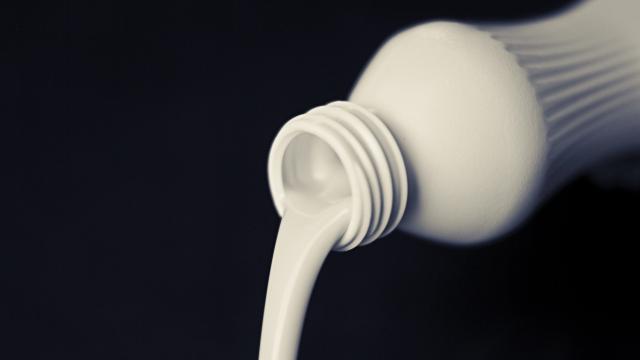Non-dairy milks aren’t perfect fill-ins for cow squeezings. They’re made by watering down various plant products and their nutrition facts are nothing like dairy milks — or each other. A pair of scientists recently declared soy milk to be the most nutritious non-dairy milk. It doesn’t really matter which one you put in your coffee, though.
Photo via Best Running.
All of the milks and “milks” in the supermarket are, nutritionally, just fine for your drinks or porridge or whatever you like. The difference only matters if a plant-based milk is going to make up a lot of your nutrition for the day — for example, if you are a toddler chugging it all day long.
The scientists’ analysis points out that soy milk has just as much protein as cow’s milk, but the other non-dairy milks do not. There are other gaps in each milk’s nutrition, which you should discuss with your doctor or dietitian if you’re putting your child on a diet that includes a huge amount of one of these liquids.
But if you’re just putting a dollop in your coffee, this is not a high-stakes decision. They’re all fine. You’ll get 38kJ in a glug (two tablespoons) of soy milk, compared to 17kJ in almond milk. Not exactly going to make or break your diet.
Confused about what this means for you, in total? Here’s your cheat sheet, where we tell you what’s in 100mL of each milk. The details may vary by brand, so we used the FSANZ nutrient database for these examples. Unfortunately, soy and coconut milk are not listed, so we’ve used values from the Sanitarium website in their place.
Soy milk
- Kilojoules: 273
- Carbs: 5.1g
- Fat: 3.5g
- Protein: 3.2g
Almond milk
- Kilojoules: 123
- Carbs: 3.6g
- Fat: 1.4g
- Protein: 0.6g
Rice milk
- Kilojoules: 255
- Carbs: 12.7g
- Fat: 1g
- Protein: 0.3g
Coconut milk
This is the watered-down kind you find next to the soy milk, not the creamy stuff in the cans.
- Kilojoules: 95
- Carbs: 0.3g
- Fat: 2.1g
- Protein: 0.2g
Cow’s milk
(for comparison purposes)
- Kilojoules: 281 (skim: 203)
- Carbs: 6g (skim: 4.8g)
- Fat: 3.4g (skim: 0.1g)
- Protein: 3.4g (3.6)
Skim milk is just regular milk with the fat removed. The carbs and protein are slightly higher for skim milk because you can fit more of the watery portion of the milk into the same volume.

Comments
4 responses to “Here’s How Soy Milk Stacks Up Against Other Plant-Based Milks”
What about phytoestrogens? Soy are known to be high in phytoestrogens and the others you listed either don’t have any or low in concentration.
It would take an article series to cover the concern over phytoestrogens in soy – maybe shortened down if they only focused on isoflavones – with any kind of balance. Considering how science-illiterate people are on the issue, balance would be an absolute necessity.
Mind you, I’d enjoy reading the section that contains a comparative analysis of the known and putative detrimental effects a range of foods influence in humans.
Because they’re not needed in your diet. They’re not know as being a nutrient because there a sense from our diet does not cause any disease.
Having them has no benefit or side effect, they are only advertised for marketing purposes.
There absence. Sorry, typo.
For all those breibart types out there.
There is no link between consumption of soy and levels of testosterone or estrogen.
Calling someone a “Soyboy” just makes you look like an unintelligent fool.
Soy milk is also missing the blood and pus found in regular dairy milk.